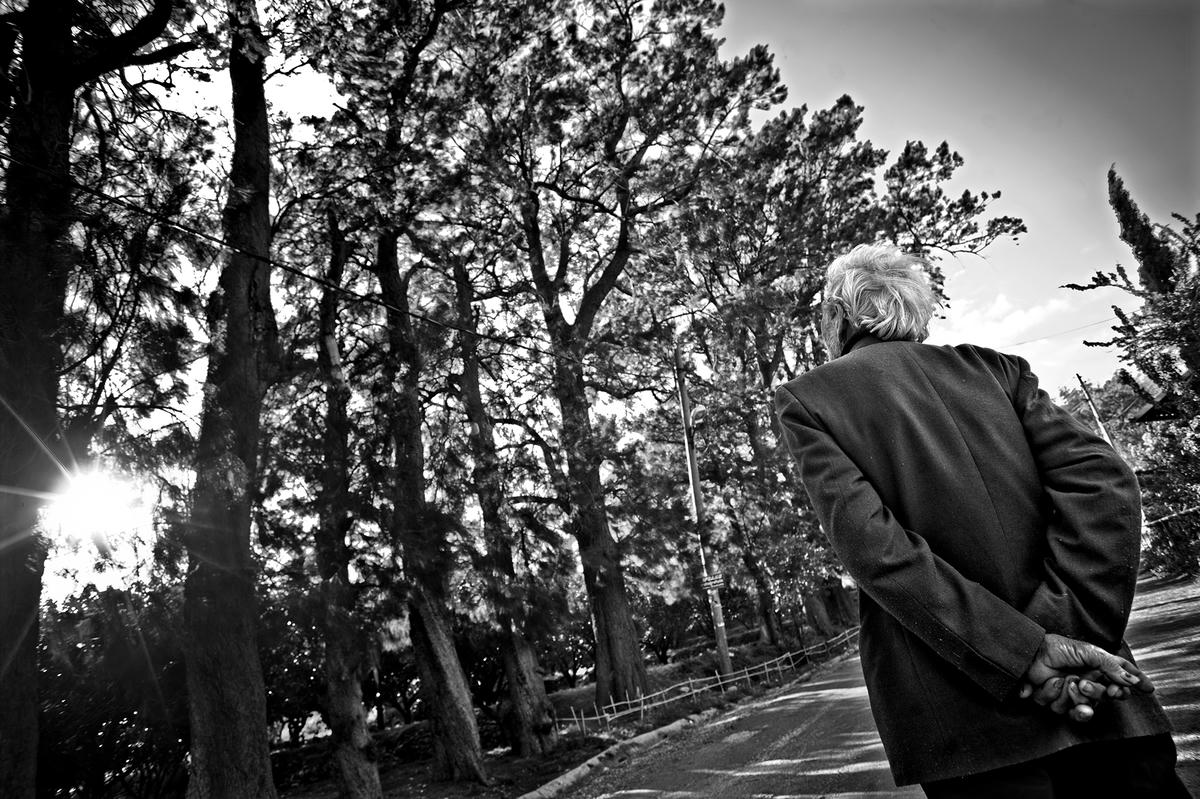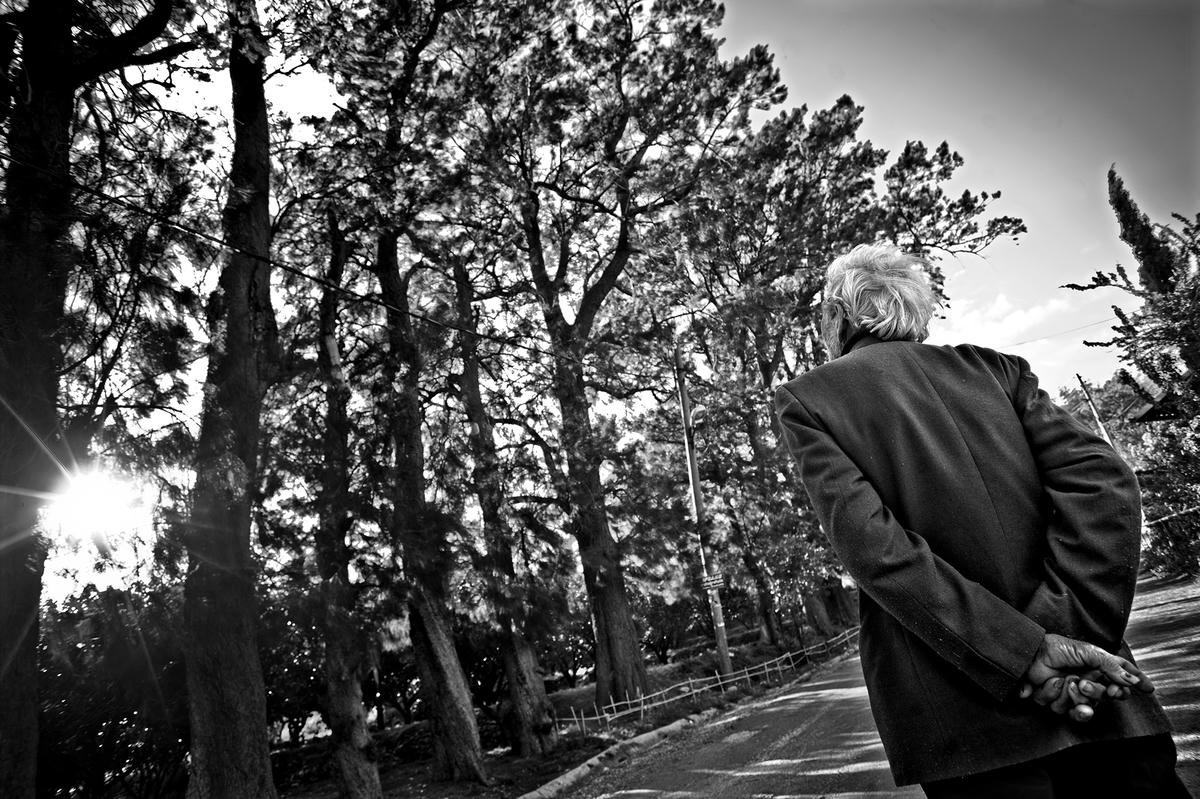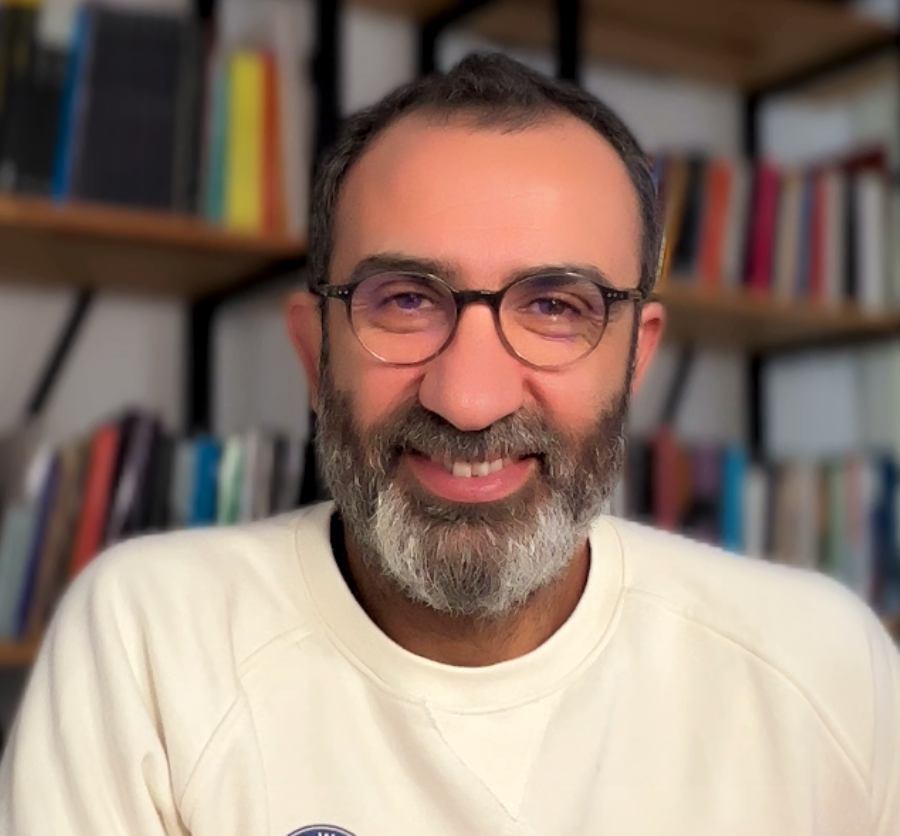“Turkey's problem is not ageing, but ageing in poverty”


The claim that Turkey has a young population can be encountered even if you talk to people from very different sections and positions. The unquestioned transfer of this information, which is based on memorization but is sometimes used especially for manipulation, points to social problems that will deepen if it is taken as a basis when determining social or economic policies. Old age and the rights of the elderly are among the least studied subjects in academy. Prof. Dr. Özgür Arun, a faculty member at Akdeniz University, Department of Sociology, is one of the few people working on the subject. He is also one of the founders of Senex Ageing Studies Association, which carries out monitoring and reporting activities in this field. Founded in 2019, the association does an important job in terms of increasing the production of academic knowledge in this field and publicising this knowledge with its journal and congress activities.
Does Turkey really have a young population? Does this society love and respect its elderly as it is believed? How did Turkey manage to fit Europe's 80-100 years into 15 years? What kind of future does this demographic trend give clues about? We talked all of these with Özgür Arun.
Our most basic question is: Does Turkey have a young population as it believes and boasts?
Yes, people believe that we have a young and dynamic population; more than that, policy makers and even some scientists say so. Being young is blessed, a belief that being a young society is always advantageous. Turkey is not a young society, in fact today Turkey is a very old society. When I started to work on ageing a quarter of a century ago, I was talking in an agitated manner, saying that Turkey's population was ageing, we need to build our infrastructure as soon as possible, we need to organise our labour markets, our legal system, we need to build scientific studies on this, and we need to produce social policies from this. We have passed this period; Turkey is one of the fastest ageing countries in the world. There is a typical demographic transformation that every society will experience once; the number of children and young people decreases, and the number of elderly people increases. We scientists and researchers are witnessing this, and I see this as a chance for me.
And once that happens, what does it evolve into?
We do not yet know what happens next. The theories of demographic transition are the theories of the ageing process in Europe. We call the time it takes for the elderly population to double the aging rate. For example, France experienced this in 115 years, Sweden in 85 years, Germany in 80 years. Since this process was slow, they were able to make many preparations. Societies like Türkiye, such as Iran, Azerbaijan, Argentina, Brazil, Chile, then Indonesia and South Korea could not do this because they were aging too quickly. Turkey went through this process in 15 years.
What accelerates the rate of ageing so much?
There are two main factors. One is the decline in birth rates and the other is the decline in mortality rates. In addition to these, the third factor is differentiated migration dynamics. The first two and the third have different effects on the social structure, and Turkey has aged due to all three, some regions due to the first two, some due to rural-urban migration practices. I think the problem here is that scientists and policy makers define this as a risk. Why should ageing be a risk? Otherwise, the world's wealthiest countries would not be the oldest countries at the same time.
Is the dominant factor the perception of being out of employment as a disaster due to the fetish of economic growth?
Turkey's problem is not ageing, but ageing in poverty. Since we cannot realise production in the labour markets, ageing is categorically treated as a problem. The social contract is globally based on the following: Seven economically active people in the 15-64 age group will work and they will care for one person. In Turkey, this balance has been out of balance for a long time. It is now two to one. The country is experiencing problems because we cannot include our active population in production and cannot improve income distribution. How striking it is that they are trying to put these problems on the backs of a section of the society, the elderly people.
You said that we cannot include the active population in production, but at the same time, due to the crisis, many people over the age of 65 had to return to work, and women who have provided home care labour for years are working for the first time in their 70s. In addition to the poverty of the elderly, we are among the first in the world in terms of youth poverty, especially the poverty of young women. Isn't the situation you mention a direct result of economic policies? How effective are different forms of employment and increasing informal employment in making this two-to-one ratio visible?
Good question because when I say that I work on ageing, people think that I only work on the elderly. Working on ageing covers childhood, youth, all of adulthood. I am also interested in child poverty, the situation of young people in labour markets and I also ask the following: What will children working in seasonal, mobile, temporary jobs do when they get older? What will happen to child labourers who are forced to work in their old age? What will happen to young people in flexible employment and piecework jobs, who do not receive social security investments, when they grow old, even though they enjoy middle class welfare? What kind of an old age awaits babies who cannot receive adequate nutrition today due to poverty? What will those who live alone do in old age? We do not know any of them, there is no research or policy on these issues in Turkey. We are a few scientists in this field. You are very right to touch on these issues, yes, the quality of employment is changing. The migration of educated people is an issue. Our inability to include women in employment is an issue. We cannot correct the inequality in income distribution. Even according to official figures, child poverty is 27 per cent and elderly poverty is 17 per cent. These are two different but very striking types of poverty.
According to this trend, what kind of a country awaits us in 2050?
In my opinion, social conflict between generations will become widespread as we proceed in this way. Demography will determine democracy. People from different age groups will be able to say that the elderly should not vote. Age discrimination will increase tremendously. This is a terrible conflict. You can fix the economy, you can alleviate poverty, but when the intergenerational conflict deepens, we don't have the means to compensate for it.
Another myth is that this society values the elderly. Even before this conflict, Turkey was not a society that loved elderly people. The pandemic and the economic crisis have made this especially evident. It is as if there is a forced care agreement between generations that is not a product of love; the elderly are not seen as individuals, because those who see them as such have no consciousness or mental preparation for their own old age. Would you agree with this?
Since I have been working in the field for a long time, I have been monitoring cases of violence, neglect and abuse against the elderly. When I shared these with the authorities, I was told that Turks love their elderly, what you have encountered is isolated. In 2021, we started the Senex monitoring study, a study that monitors and reports violence and rights violations against the elderly. Let me tell you the data of only four months of 2024. There were 655 violations of rights in total, 55 per cent of which resulted in death. We are not just talking about breaking hearts, we talk about people died. When I see these figures, I say that Turkey is at war with its elderly. Violence against elderly women is at a terrible level. Apart from gender, do you know what the most fundamental factor is, poor elderly people are subjected to more rights violations. All of the elderly who lost their lives due to rights violations are poor. The majority of those who are subjected to age discrimination are also poor. ’Politicians does talk about family but the conventional family consisting of mum, dad, children and the elderly does not exist in Turkey. The family is transforming, the family has never been a sterile environment. Besides, Turkey is trying to provide all the care service through this conventional family. How will people living alone receive support? What about the elderly who have lost their children or the elderly who have chosen to live differently? This is a policy blind to society. It also has nothing to do with increasing fertility because the number of poor elderly will not decrease when the number of babies increases. As well as the existing elderly population, let's also think about the old age of children who are forced to work in temporary, mobile jobs and in the agricultural sector, young people who are currently working in flexible employment. Moreover, retirement means becoming poorer and poorer in Turkey.
Even the existing services for the elderly are not rights-based, what are your suggestions for the short term?
Rights-based municipalism is not well known in Turkey, it is always need-based. There is also this side of the issue. It has been understood that centralised policies will not be effective in eliminating inequalities at the local level. There has been such a trend in the world in the last 20 years. Turkey tried to do the same in 2005 and 2012 with large-scale changes in the law on local governments, but failed. Since the trauma of division could not be overcome, political intervention is being made. Secondly, it was envisaged to eliminate inequalities in four social segments: children, women, the disabled and the elderly through delegation of authority to the local level. Speaking for the elderly, this delegation of authority was problematic; local governments with capacity and budget were able to improve the quality of services, but weak local governments could not. Therefore, the second problem is the fragmentation of services and the creation of new inequalities. Therefore, in order to eliminate regional inequalities, local governments must be strengthened. We need to create inclusive cities based on human rights, not “child-friendly”, “women-friendly”, “disabled-friendly” cities.
We could have talked about this at the very beginning, who do you call old today?
This is the issue we discuss a lot. According to the World Health Organisation, the definition of old age starts at 65, the United Nations at 60. In Turkey, it is not defined in a law, but TÜİK starts old age at 65. These are de facto classifications. Who is called old varies according to time, culture and field. If you work on labourers, those over the age of 50 are called elderly workers. I work on elderly prisoners, because of the traumatic past, we start old age studies at the age of 50. But if I work in the field of sports, depending on the field, a 32-year-old athlete can also be defined as an elderly person.



